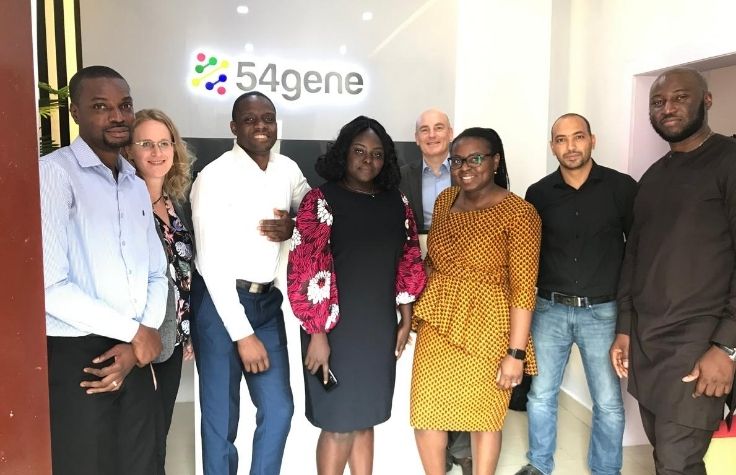The landscape of African biotech was set ablaze with hope when 54gene emerged on the scene. Founded in 2019 with a vision to bridge the gap in global genomics research, the startup initially appeared as the showpiece of Africa's burgeoning biotech sector. However, a series of events, chronicled through historical facts and recent developments, have now led to the unraveling of 54gene's once-promising journey.
Nigeria has experienced both advancements and difficulties in the fields of genetics, healthcare, and pharmaceuticals. An increasing interest in genomics research has manifested itself in programs like the H3Africa and the African Genomic Medicine Training. On the other hand, Nigeria's healthcare system struggles with issues like inadequate infrastructure and a high prevalence of infectious diseases.
54gene's Emergence
In 2019, 54gene entered the spotlight, driven by a mission to address the underrepresentation of Africans in global genomics research. The startup's entry into Y Combinator in the same year elevated its status and cashflow, receiving $150 000 from the illustrious incubator, signaling a potential revolution in the African biotech space.
A further $4.5 million in seed funding was provided to 54gene by 11 investors in July of the same year. These investors included Fifty Years, Better Ventures, KdT Ventures, Pioneer Fund, Microtraction, Erik Peterson, Techammer, Hack VC, Gabriel Jarrosson, Y Combinator, and Pioneer Fund. The startup had never been more confident. The start-up declared their ambition to create the first African DNA biobank after receiving financial support. Collaborations with university hospitals would guarantee that the bank gathers the largest genetic samples from Africa.
In quick succession, 54gene raised two sizable expansion rounds at its peak revenue level. To aggressively enter COVID testing at the height of the pandemic, $15 million Series A was raised in 2020. To advance its skills in sequencing, target identification and validation, and precision medicine clinical trials that facilitate drug discovery in Africa for both the African population and the global population, as well as to start its expansion beyond the African continent, the company raised $25 million in Series B funding in 2021.
Challenges in 2022
2022 marked a tumultuous period for the once-thriving biotech company. Reports surfaced of dwindling revenues, layoffs, and internal strife. The company's value plummeted by two-thirds in a down round, indicative of the challenges it faced in maintaining its market standing.
Leadership changes added complexity to the situation. The resignation of co-founder and CEO Dr. Abasi Ene-Obong, coupled with the departure of key executives, fueled speculation. Allegations of financial impropriety, became part of the narrative as employees voiced concerns about irresponsible hiring and fund misappropriation.
To replace Ene-Obong as interim CEO in October 2022, Teresia Bost, the startup's legal counsel, was promoted. Barely five months into the job she was abruptly fired as the CEO. According to Bost, one of the company's investors, Tobi Oke, "would scream at her on video and phone meetings, degrading and humiliating her, and falsely criticize both her work product and legal work." At the moment, Bost is suing 54gene in court in New Jersey, along with five of its employees.
Bost claimed in her case that her pay was reduced from $330,000 to $175,999, in violation of "her written agreement" and a breach of contract because she was still carrying out all of her responsibilities.
Liquidation
Genomic research is expensive, according to several sources with in-depth knowledge of the field and 54gene's commercial strategy. "Genomic sequencing equipment is expensive, and there are additional expenses like cloud data storage. The expenses mount up rapidly, one of the people added. According to two insiders with firsthand knowledge of 54Gene's operations, the company still owes money to suppliers of some of its medical equipment.
Announcing their liquidation of its operations , the rise and fall of 54gene present a cautionary tale in the dynamic landscape of African biotech. From its ambitious entry into global genomics research to the challenges faced during the COVID-19 pivot, the startup's journey reflects the complexities of balancing growth and sustainability. As the industry observes the consequences of 54gene's struggles, the need for strategic planning, responsible leadership, and transparent communication becomes increasingly apparent. The fate of 54gene serves as a reminder that even the most ambitious moonshot projects must navigate a delicate balance to realize their transformative potential in the genomics space.


